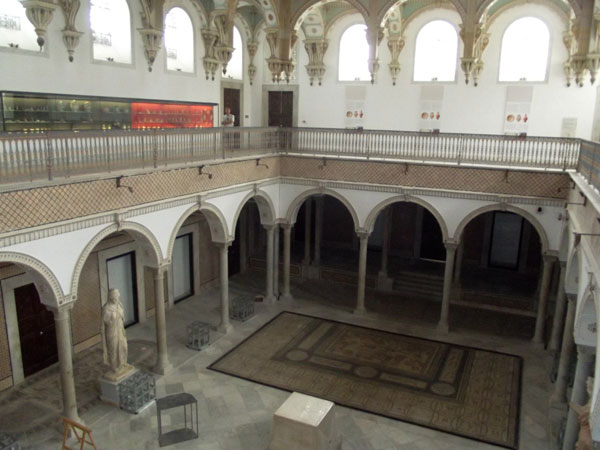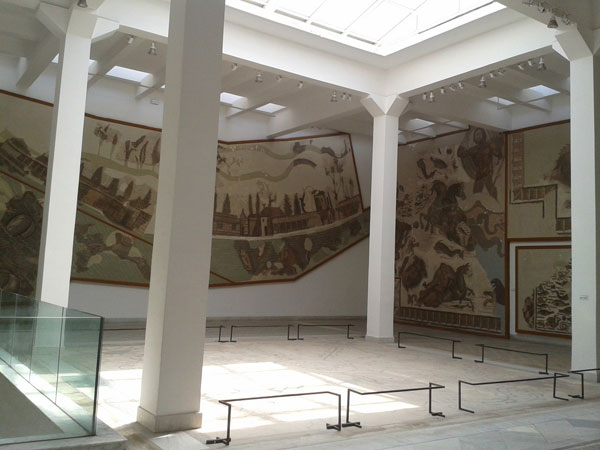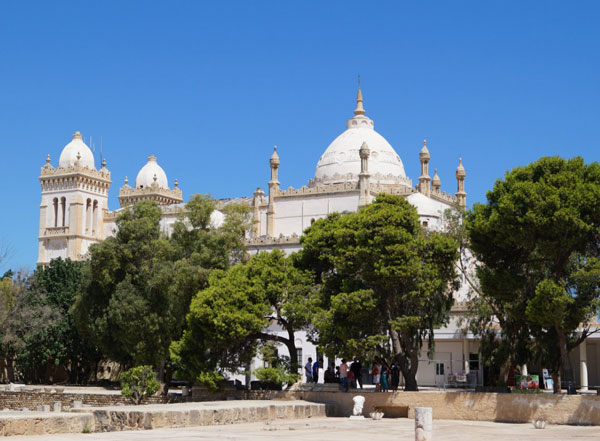The Bardo National Museum (Arabic: المتحف الوطني بباردو; French: Musée national du Bardo) is a museum located in Tunis, Tunisia. It is one of the largest museums in North Africa.
The Bardo is one of the most important museums of the Mediterranean basin, and the second largest on the African continent after the Egyptian Museum. It traces the history of Tunisia over several millennia and through many civilizations through a wide variety of archaeological pieces. Being in the former palace, it offers many major works discovered since the beginnings of archaeological research in the country. Originally called Museum Alaoui (المتحف العلوي), the name of the reigning bey at the time, it has had its current name of Museum of Bardo only since the country's independence.
In addition to famous works such as the Blue Koran of Kairouan, the Islamic Department contains a collection of ceramics from North Africa and Asia Minor.
The Bardo brings together one of the finest and largest collections of Roman mosaics in the world thanks to the excavations undertaken from the beginning of the 20th century on archaeological sites in the country including Carthage, Hadrumetum, Dougga, or Utica. The mosaics represent a unique source for research on everyday life in Roman Africa. The Museum also contains a rich collection of marble statues representing the gods and Roman emperors found on various sites including those of Carthage and Thuburbo Majus.
The Bardo has also rich pieces discovered during the excavations of Libyco-Punic sites including mainly Carthage, although the Carthage National Museum also possesses an important collection. The main parts of this Department are grimacing masks, terracotta statues and stelae of major interest for the Semitic epigraphy, the stele of the priest and the child being the most famous. The Museum also houses Greek works discovered in particular in the excavations of the ship of Mahdia, whose iconic piece is a marble bust of Aphrodite.
The museum underwent a major refurbishment, completed in 2011, that was interrupted due to the Tunisian revolution.












